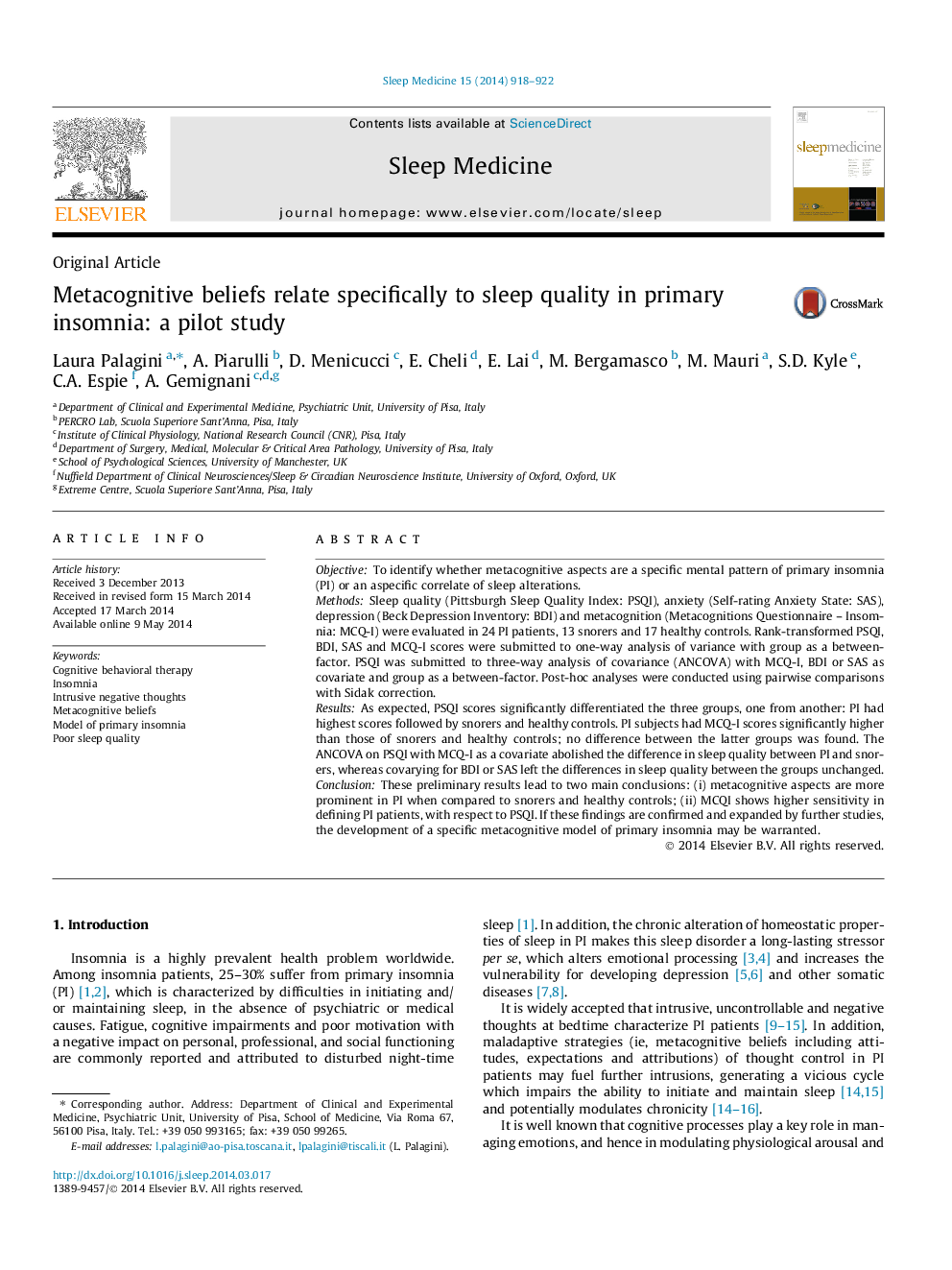| کد مقاله | کد نشریه | سال انتشار | مقاله انگلیسی | نسخه تمام متن |
|---|---|---|---|---|
| 3176091 | 1200245 | 2014 | 5 صفحه PDF | دانلود رایگان |
• Metacognitive aspects are prominent mental pattern of primary insomnia.
• Metacognitive beliefs are eligible for being considered fundamental in the aetiology and/or maintenance of primary insomnia.
• The Metacognitions Questionnaire –Insomnia: MCQ-I-scale shows higher sensitivity in defining primary insomnia patients.
• MCQ-I will help to develop a metacognitive model of primary insomnia.
ObjectiveTo identify whether metacognitive aspects are a specific mental pattern of primary insomnia (PI) or an aspecific correlate of sleep alterations.MethodsSleep quality (Pittsburgh Sleep Quality Index: PSQI), anxiety (Self-rating Anxiety State: SAS), depression (Beck Depression Inventory: BDI) and metacognition (Metacognitions Questionnaire – Insomnia: MCQ-I) were evaluated in 24 PI patients, 13 snorers and 17 healthy controls. Rank-transformed PSQI, BDI, SAS and MCQ-I scores were submitted to one-way analysis of variance with group as a between-factor. PSQI was submitted to three-way analysis of covariance (ANCOVA) with MCQ-I, BDI or SAS as covariate and group as a between-factor. Post-hoc analyses were conducted using pairwise comparisons with Sidak correction.ResultsAs expected, PSQI scores significantly differentiated the three groups, one from another: PI had highest scores followed by snorers and healthy controls. PI subjects had MCQ-I scores significantly higher than those of snorers and healthy controls; no difference between the latter groups was found. The ANCOVA on PSQI with MCQ-I as a covariate abolished the difference in sleep quality between PI and snorers, whereas covarying for BDI or SAS left the differences in sleep quality between the groups unchanged.ConclusionThese preliminary results lead to two main conclusions: (i) metacognitive aspects are more prominent in PI when compared to snorers and healthy controls; (ii) MCQI shows higher sensitivity in defining PI patients, with respect to PSQI. If these findings are confirmed and expanded by further studies, the development of a specific metacognitive model of primary insomnia may be warranted.
Journal: Sleep Medicine - Volume 15, Issue 8, August 2014, Pages 918–922
